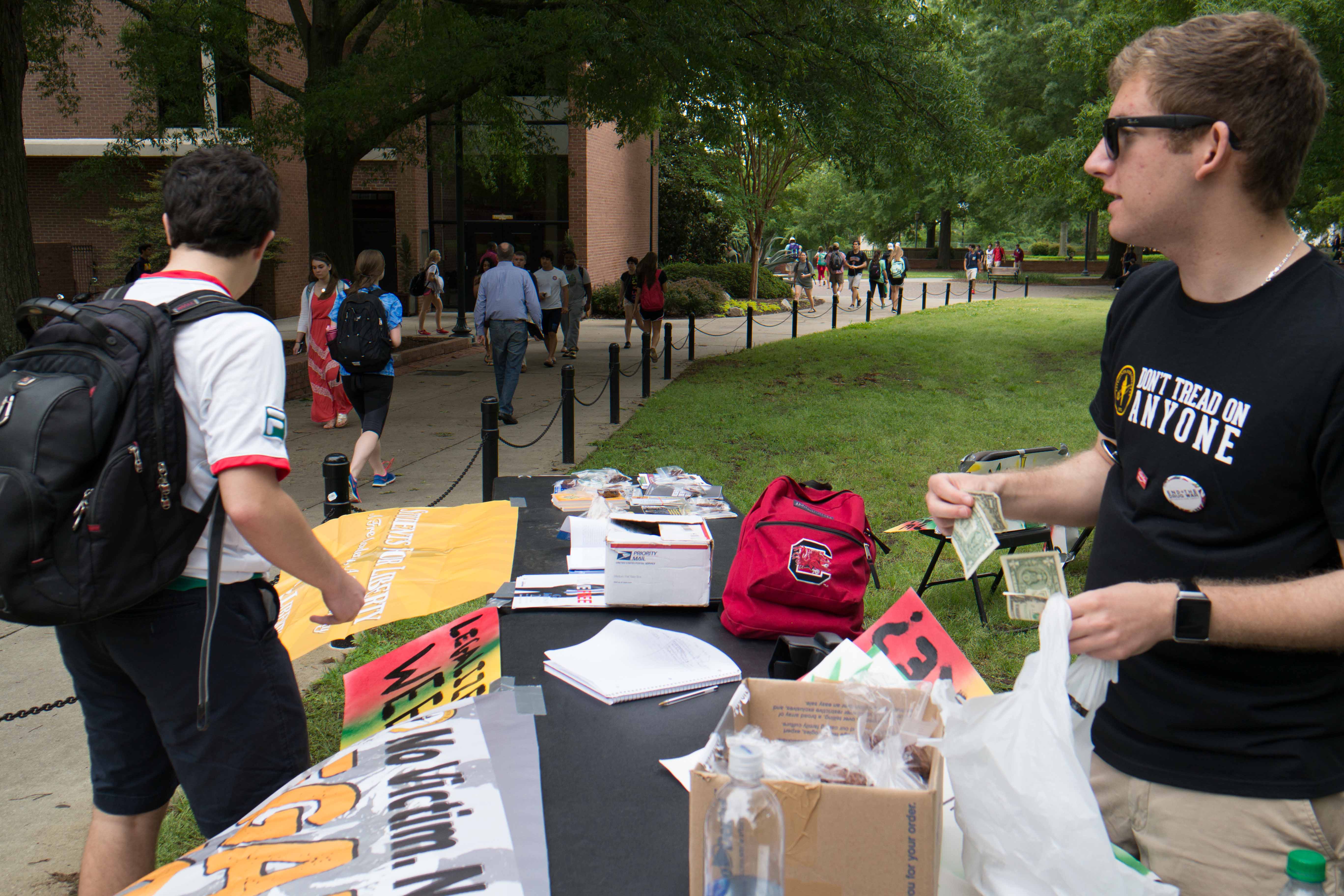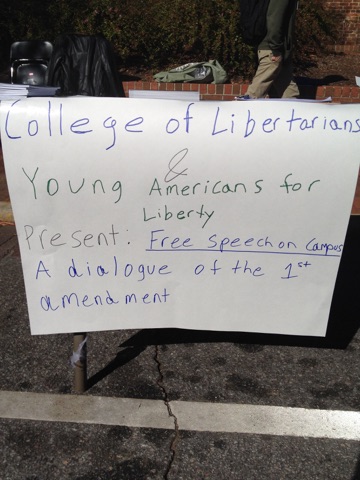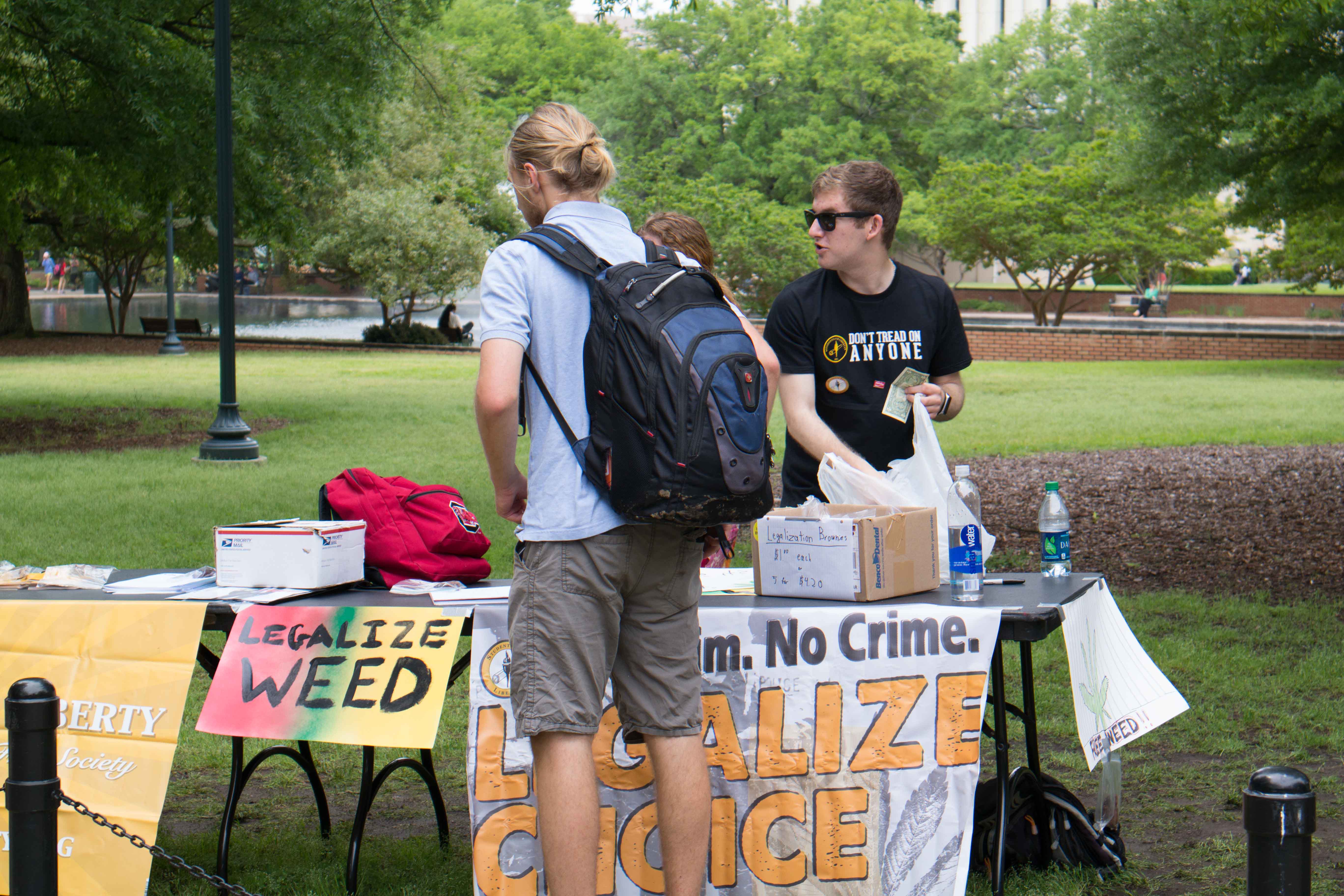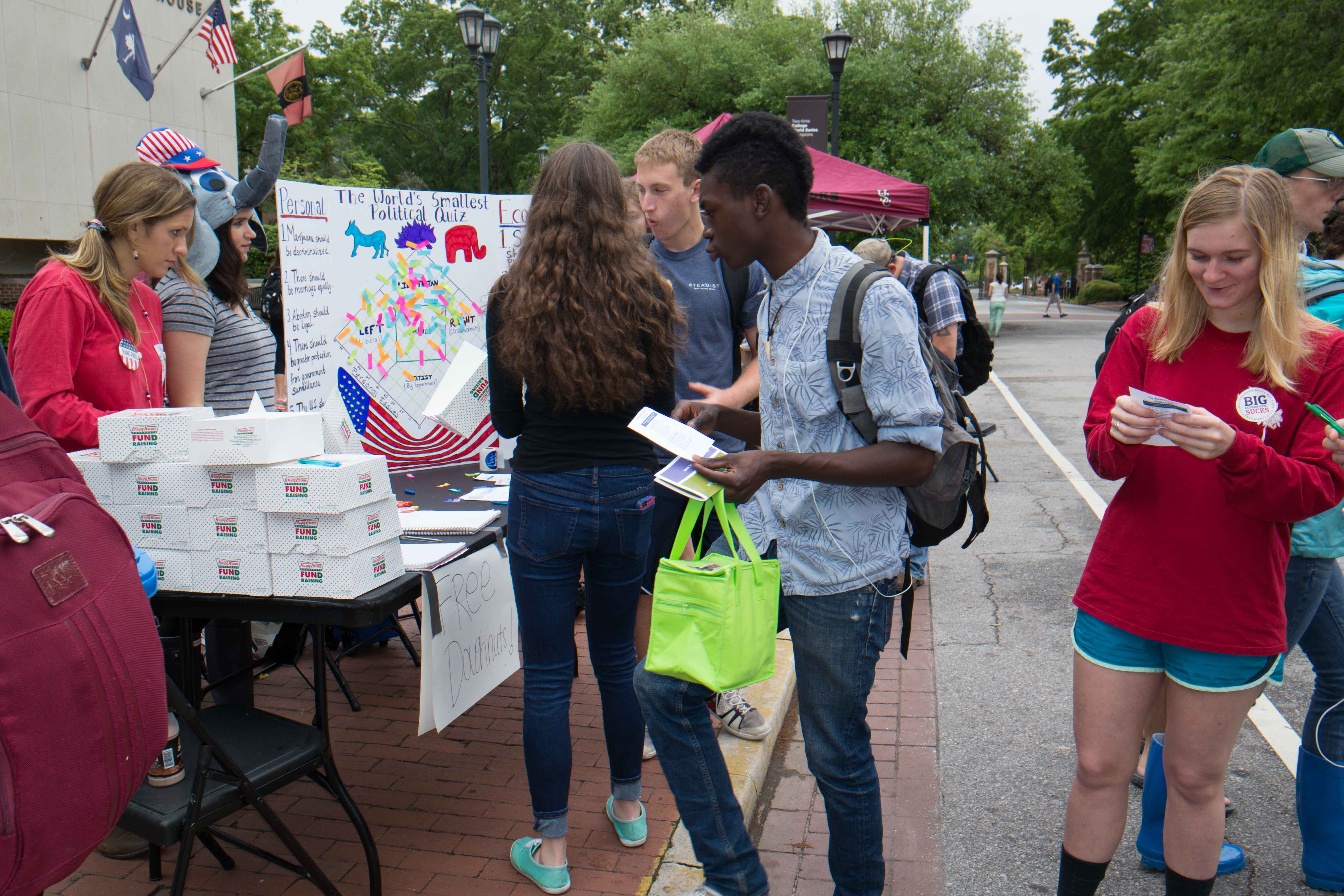Meet Ross Abbott, Speech First’s New Legal Fellow
- “I filed suit against [my university] to require them to repeal their unconstitutional speech codes and make sure no other students would have to go through the same kangaroo court process I did.”
- “What’s different today [about campus censorship] is that a growing number of students have begun to weaponize their school’s power against their peers rather than working together to prevent government overreach.”

Name: Ross Abbott
Title: Legal Fellow, Speech First
Education: University of South Carolina, Emory University School of Law
Q: What inspired you to study law?
A: I’ve always had a passion for debate and discussion, especially as a method for learning and truth seeking. At some point during my childhood I learned that lawyers are basically professional arguers, and I immediately knew that was the job for me.
Q: Tell us about the lawsuit (Abbott v. Pastides) you were involved in during college.
A: In the fall of 2015, the College Libertarian student group that I launched at the University of South Carolina held a tabling event focused on free speech on campus and across the country— especially the examples of how petty campus administrators can be when they’re given the power to censor students.
We created short write-ups of examples where students and professors had been suspended, expelled, or otherwise punished by their schools for expressing constitutionally protected speech, and displayed them on posters alongside the exact quotes that had gotten the students and professors in trouble in the first place. Some of them were silly, like a sorority punished for hosting a supposedly insensitive “Taco Tuesday” party. Others were more difficult, like a history professor trying to teach about “Operation Wetback” or a Jewish fraternity trying to reclaim the swastika to remove its hateful stigma.
 It took weeks to convince the University to let us hold the event, but eventually we got permission from the appropriate office. The event was held without any problems; we had productive discussions with hundreds of students and faculty. But the next day I received notice from the university that I was facing official disciplinary charges from the school’s Bias Response Team – for talking about free speech at a University-sanctioned event.
It took weeks to convince the University to let us hold the event, but eventually we got permission from the appropriate office. The event was held without any problems; we had productive discussions with hundreds of students and faculty. But the next day I received notice from the university that I was facing official disciplinary charges from the school’s Bias Response Team – for talking about free speech at a University-sanctioned event.
The University kept the investigation open for more than a month and forced me to come in to meet with an administrator to talk about my “crimes.” They refused to clarify what policy they were claiming I had violated, what my potential punishment could be, or how I could talk about controversial topics in the future without facing a similar investigation.
The school eventually dropped the charges, but I filed suit against USC to require them to repeal their unconstitutional speech codes to make sure no other students would have to go through the same kangaroo court process I did.
Q: Based on your research and experience, what tactics do college administrators use to restrict students’ free speech rights on campus?
A: The biggest and most common barrier I see most students go up against is just the inertia of a bloated bureaucratic system. Some administrators aren’t actively trying to block students from speaking, they’re just not used to getting anything done in a timely fashion. These administrators don’t have tactics. They bury students under a mountain of paperwork not because of any personal animus but because they can’t brush their own teeth without filling out the proper form and getting approval from a supervisor.
Then there are what I call “don’t rock the boat” administrators. The job of school administrators is easiest when campus is quiet; anything that departs from business as usual means more work for them. They will discourage or try to block students from doing anything new, different, or otherwise against the grain. Student speech is just one of the many things that is inconvenient for these types and that’s why they obstruct it.
Of course, the worst kind of administrator is the daycare worker. They view students like babies fresh out of the womb who need protection from everything. Skinned knees, planning events on their own, and challenging ideas are all potentially deadly risks their students could face on a daily basis! They will stop at nothing to prevent would-be speakers from exposing their vulnerable wards from criticism. “Sticks and stones may break their bones, but words will surely kill them.”

Q: Do you think the First Amendment needs additional legal protection in America? Why should we care about the preservation of free speech anyway?
A: The First Amendment is its own legal protection, if only people would read it. Too many people think it requires Facebook or other private companies to treat all speech equally, when in fact only the government (and therefore government-run schools) is bound by the First Amendment. Others think free speech includes most speech, but not really unpopular speech like “hate speech.”
It’s easy to hold these views if your opinion happens to be mainstream and doesn’t need protection. But as John Stuart Mill once wrote, “Bad men need nothing more to compass their ends, than that good men should look on and do nothing.” America was founded when citizens made unpopular protests against oppressive English rule over the Colonies. Equal rights for women and for African Americans were once novel, and deeply unpopular, ideas. The challenge of free speech is not in defending the speech we like, but in the speech we don’t like. The First Amendment protects the rights of Nazis to make an unpopular march through Skokie, IL the same way it protects the rights of Martin Luther King Jr. to make an unpopular march through Washington, DC.
Q: What can we do to change the culture of censorship on college campuses?
A: Colleges have always sought more control over their students like an overprotective parent. For generations, students have had to fight back against school administrators. What’s different today is that a growing number of students have begun to weaponize their school’s power against their peers rather than working together to prevent government overreach. This is what has tipped the decades-old campus censorship battle into a crisis today.
Students are better today than ever before at recognizing the humanity in people who look or sound different from them. But years of increasing political polarization in our society has led them to refuse to extend that same humanity to people of differing political ideologies. Political rivals typically want the same thing- a better, happier, more productive, and healthier world- but simply disagree on how to get there. Students who are willing to address their differences with each other have no need to demand their college censor one another.

